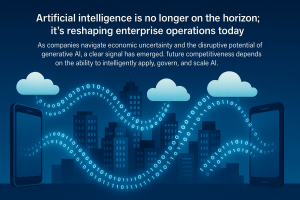Premise
Consumer Internet service providers in the 2000’s established new ways of managing data. They didn’t completely replace the SQL DBMS’s that had dominated enterprise computing for 30 years but instead augmented them. But the decision to use these new types of databases wasn’t always about technology.
This research update builds on the prior one by reviewing some of the non-technical criteria more traditional enterprises need to consider when evaluating databases for the new Systems of Intelligence. These non-technical criteria include pricing; licensing; skill sets and training; and how the database fits into an organization’s culture, which can involve the department that initially develops on the database and another department that deploys and operates it.
This note focuses on pricing and licensing issues.
Software is free, pay for support
Open source licenses are becoming standard for infrastructure software. Open source isn’t just about lower price points. It reduces the risk of lock-in and opens up a new model of innovation where the ecosystem assumes part of the stewardship of the product from the vendor.
Data volumes are growing far faster than IT budgets. Today, Oracle 12c Enterprise Edition with all the options costs nearly $300,000 *per processor core* at list price. Even at a 2/3 discount, that’s still $100,000 per core.
IT can’t make the math work in trying to grow data management capacity at these traditional pricing levels. Open source pricing levels reflect this reality.
Open source pricing basically means the software is free but customers can choose to pay for help in keeping it running. In other words, vendors don’t capture value in the data management technology. They add value in the management technology that keeps the software or service running at the lowest cost (and risk) of administration.
Continuing with MongoDB as an example, according to pricing documents that were once public and then removed, the company charged only for premium support. Their remote management service, security, patches, and 24×7 hotline cost $10,000 per server per year with up to 512GB RAM as of Fall 2014.
Previous Wikibon research has explained how Oracle 12c is *at least* as capable of handling JSON-structured data as is MongoDB, at least on paper. But a server with dual CPUs each with 12 cores running Oracle is going to cost over $3.5M. That’s just in up-front license fees (even assuming a 50% discount) as compared to $10K/year/server for MongoDB. And an organization choosing community support can use MongoDB for free.
Action Item
Databases are just one more category of infrastructure software going through a slow motion collapse in price levels with the rise of open source and cloud-based metered pricing. The major consumer Internet online service providers virtually created this state of affairs by themselves. They developed world class open source data management software as a byproduct of building out their core services. That certainly changed the pricing and licensing dynamics for traditional vendors.
Every enterprise now has to think about performance tiers for their data. Storage has long had different tiers for different performance and capacity requirements – from flash SANs to direct attached JBOD to tape. Business critical transactions are going to leverage traditional SQL databases for a *long* time. But practitioners will have to weigh pricing, licensing, skill sets, and cultural fit in addition to feature sets.



